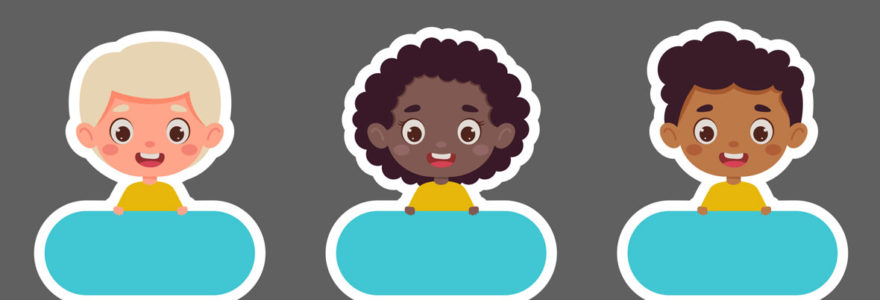Personalised Name Labels and Objects refer to everyday items that have been customised to include a child's name, initials, or other identifying elements. These items can range from clothing and school supplies to toys, bedroom decor, and even digitally personalised games. A growth in digital printing technologies and online shopping platforms has led to an increasing demand for such personalised items. More parents are looking towards customised products that can create a unique, intimate, and memorable experience for their children.
The Importance of Personalisation for Kids
Personalisation holds profound importance for children's development and growth. The incorporation of a child's name or other personalised elements into their possessions does much more than merely adding a fun, unique touch. It also contributes significantly to their identity formation, learning of ownership and responsibility, and self-esteem and confidence. For more follow this link.
Building Identity and Self-Expression
Personalised items provide children with a sense of identity. A child's name is one of the first things they learn and identify with, and seeing it on their belongings reinforces this association. Moreover, personalisation options that go beyond names, like favorite colors or characters, allow children to express their unique personalities, preferences, and creativity.
Importance in Learning Ownership and Responsibility
Personalised items also teach kids about ownership and responsibility. When an object is distinctly marked with their name, children tend to take more care of it, developing an understanding of what it means to own something and be responsible for it. This can translate into valuable life skills such as accountability and respect for others' property.
Boosting Self-Esteem and Confidence
Additionally, personalised objects can boost a child's self-esteem and confidence. Having items that are distinctly theirs makes children feel special and valued, which can contribute to a healthier sense of self-worth. Moreover, it can provide them with a sense of security and comfort in unfamiliar environments.
Popular Personalised Objects for Kids
Personalisation extends to an array of children's items, from practical everyday objects to playful toys and aesthetically pleasing decor.
Personalised Clothing and Name Labels
One of the most common types of personalised objects is clothing and name labels. These can be particularly useful for young children in daycare or school settings where clothing mix-ups can happen. They also add a fashionable touch to kids' wardrobes.
Customised School Supplies
Customised school supplies, such as pencils, notebooks, and backpacks, are also popular. These items not only make schoolwork more fun but also help children keep track of their belongings and develop a sense of responsibility.
Personalised Toys and Games
Toys and games with a child's name or likeness can create a more immersive and exciting play experience. For example, a jigsaw puzzle featuring the child's name or a teddy bear wearing a shirt with the child's initials can make playtime even more special.
Unique Bedroom Decor
Lastly, unique bedroom decor, such as name signs, custom wall decals, and personalised bedding, can make a child's personal space feel truly their own. This can foster a sense of belonging, pride, and independence.
How Personalised Objects Help in Social and Emotional Development
Besides contributing to a child's sense of identity, ownership, and self-esteem, personalised objects also play a significant role in their social and emotional development.
Developing a Sense of Belonging
Personalised items can give children a sense of belonging, which is fundamental to their emotional security. Whether it's a backpack with their name on it or a custom storybook featuring them as the main character, these items can make children feel recognised and valued in their social groups.
Encouraging Individuality and Uniqueness
Furthermore, personalised objects can encourage a child's sense of individuality and uniqueness. They give children the freedom to express themselves, showcasing their personality and preferences, which can boost their confidence in social interactions.
Building Stronger Social Connections
Finally, personalised items can help build stronger social connections. When kids see their names and the names of their friends on shared items, such as school supplies or party favors, it can foster a sense of community and connection.
Choosing the Right Personalised Objects for Your Child
When choosing personalised items for your child, it's important to consider a few factors to ensure the objects serve their purpose and are loved by your child.
Age-Appropriate Personalised Items
First, make sure the items are age-appropriate. A personalised toy or game should be suitable for the child's developmental stage and skills.
Considering Your Child's Interests
Second, consider your child's interests. If your child loves dinosaurs, for instance, a dinosaur-themed personalised item will likely be a hit.
Quality and Safety Considerations
Lastly, always consider the quality and safety of the personalised objects. Make sure they are made of non-toxic materials and have no small parts that could pose a choking hazard for young children.
Best Practices for Personalising Objects for Kids
Here are some best practices for personalising objects for kids that can make the process more effective and enjoyable for both you and your child.
Choosing Durable and Washable Name Labels
When personalising clothing or other items that are likely to get dirty, opt for durable, washable name labels. This will ensure the labels stay intact and legible, even after repeated use and washing.
Using Fun and Engaging Designs
Use fun and engaging designs that your child will love. Bright colors, favorite characters, and playful fonts can make personalised items more appealing and engaging for kids.
Including Your Child in the Personalisation Process
Finally, include your child in the personalisation process. Let them choose the colors, designs, and characters they like. This not only makes the objects more appealing to them, but it also gives them a sense of ownership and involvement in the creation of their personalised items.
